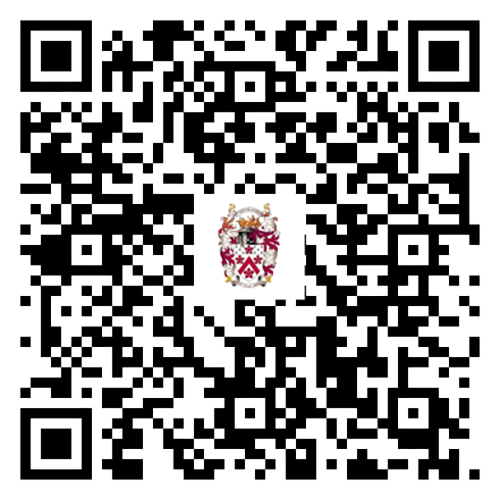Accelerating Learning for our Chinese as a Native Language Pathway Students
Dulwich Pudong students who speak Mandarin as their mother tongue have established a high benchmark in the IB exam.
Over the last three years they have achieved an average score of 6.54 (out of 7) on the Chinese A Language and Literature (HL) subject test and 6.32 (out of 7) on the Chinese A Language and Literature (SL) subject test. In addition, many of them have obtained the prestigious bilingual IB Diploma, testament to a truly high level of bilingual achievement.
This is a result of our Chinese as a Native Language (CNL) curriculum which begins in DUCKS Early Years with the Dual Language Programme and continues through Junior School to the I/GCSE and IB Diploma Programme in Senior School.
The goal of our CNL programme goes beyond linguistic and written fluency. We want our CNL students to acquire deep cultural, philosophical, and aesthetic knowledge of our host country. One of the most critical stages in that journey is in Year 1 and Year 2 (what is called Key Stage 1 in the British curriculum).
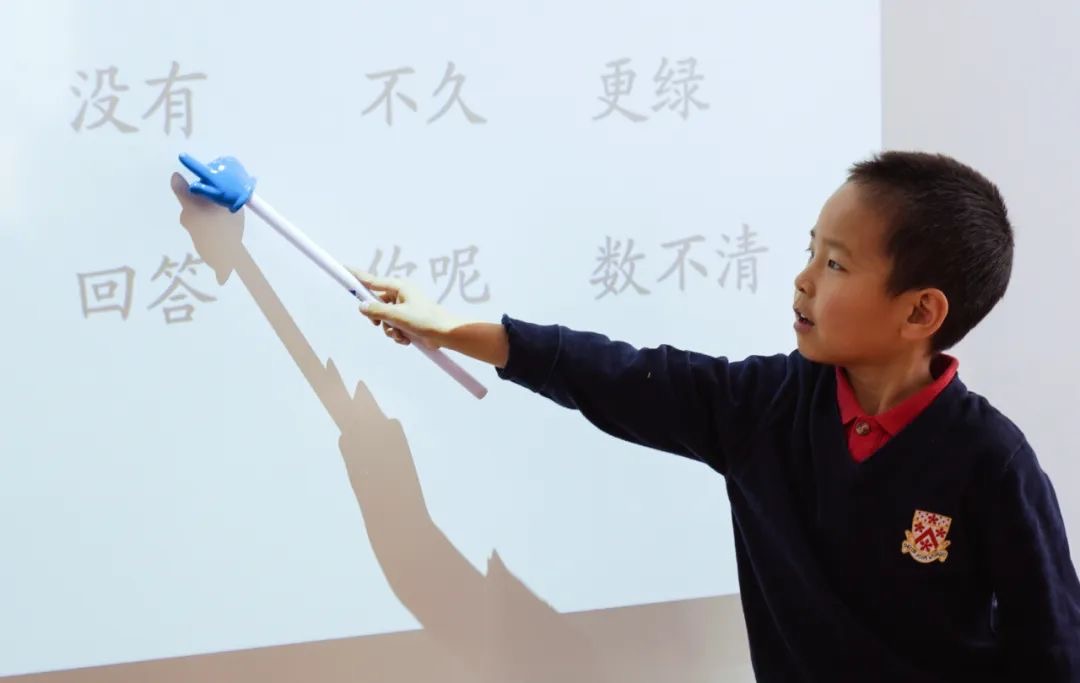
Research shows that childhood is the key stage for language acquisition. At Dulwich Pudong, the formal Mandarin course for all students begins in the Term 2 of Reception (equivalent to 中班 in the local system), where students have two discrete Mandarin lessons per week. In Term 3, the Chinese provision is increased to three sessions a week as the literacy course 我会 ("I Can Read and Write") begins.
This is also the point that students will begin to pursue a personalised language pathway, such as the CNL programme, which is taught according to the different backgrounds and needs of each student.
Ms. Vivi Bian, DUCKS Key Stage 1 (Year 1 and Year 2) Mandarin Coordinator and Dual Language Teacher, shares how we accelerate Mandarin learning in Year 1 and Year 2 for our CNL pathway students.
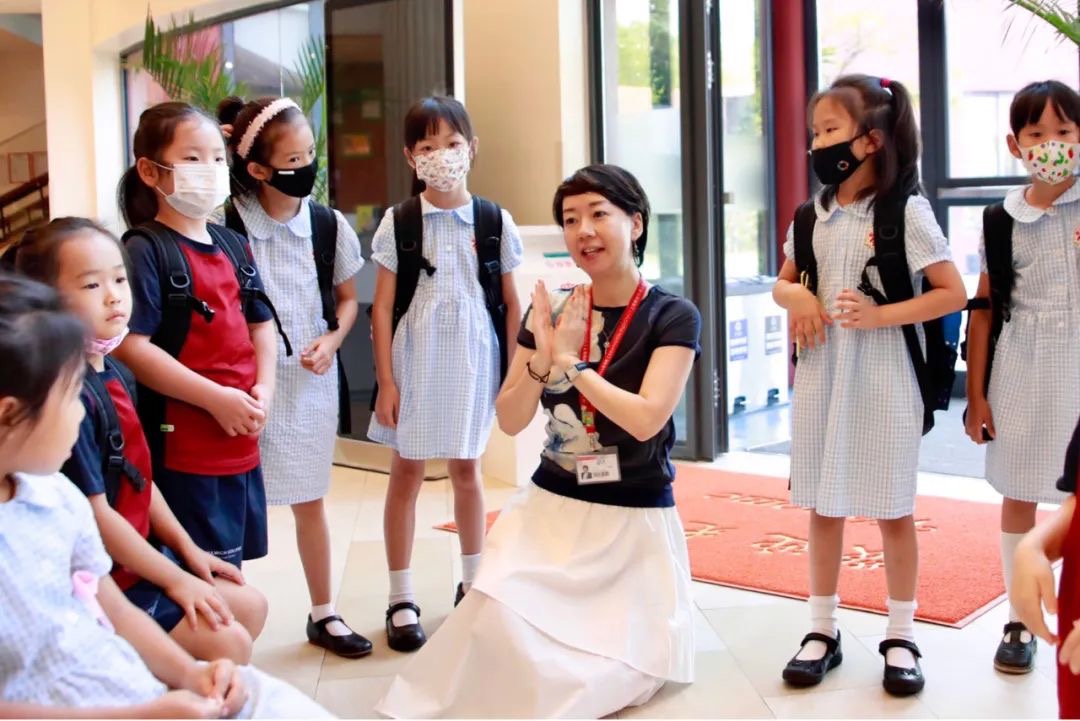 Vivi Bian, DUCKS Key Stage 1 Mandarin Coordinator
Vivi Bian, DUCKS Key Stage 1 Mandarin Coordinator
New Textbooks
Last year we were thrilled to introduce new, enhanced teaching materials for our DUCKS and Junior School CNL pathway students.
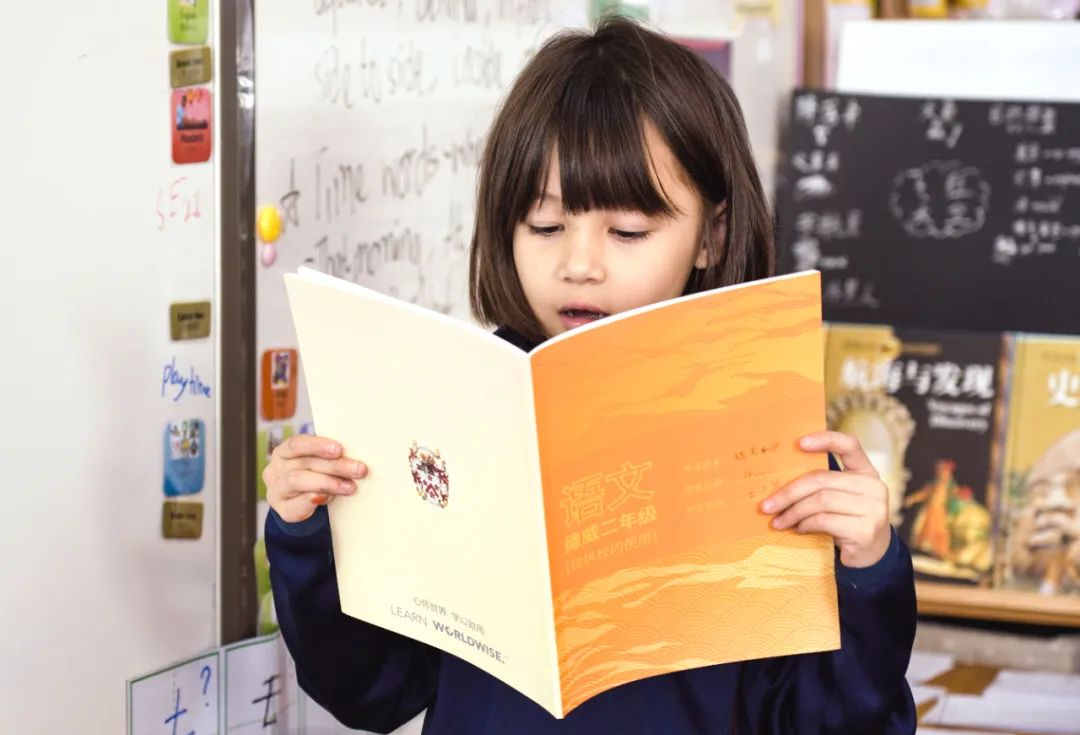
The new textbooks, which are now used across the Dulwich College International family of schools, are based on the textbook compiled by the Ministry of Education, but carefully modified and re-arranged for our unique context.
Annabel Parker, Director of Mandarin at Dulwich College International, explains that the national curriculum materials have their advantages, but their main purpose is to prepare local students for high school and college entrance exams (中考 and 高考 respectively). Our goal at Dulwich, however, is to prepare students for the IB Diploma Program. As a consequence certain changes and modifications were necessary.
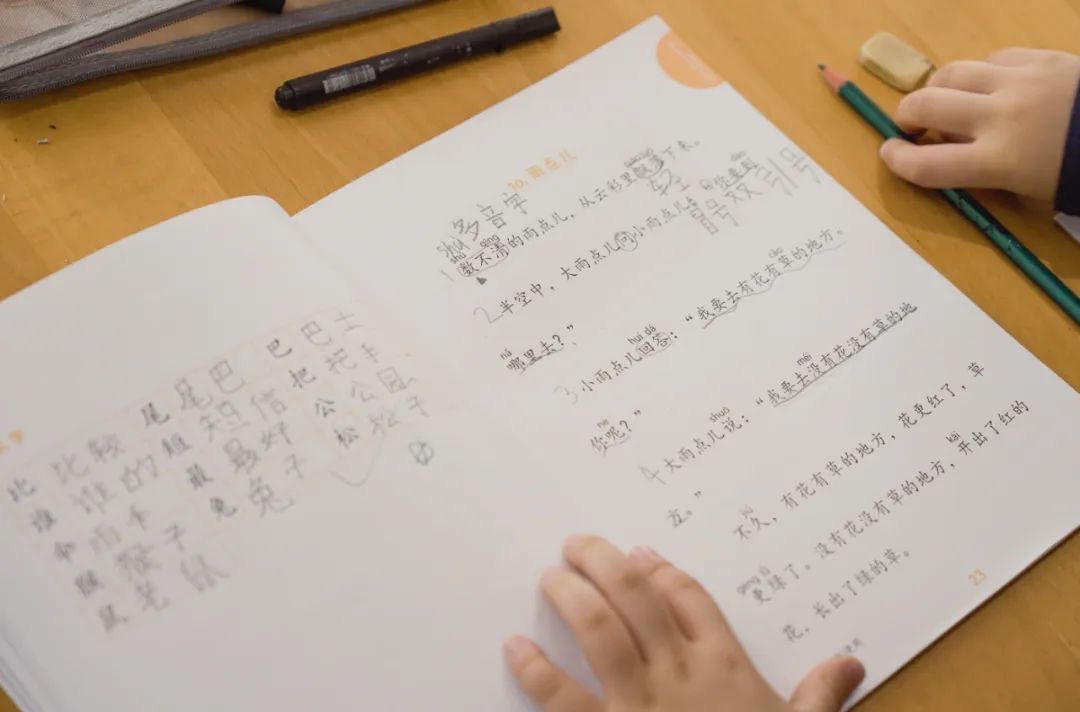
The new textbooks greatly increase the amount and variety of texts that our CNL students are exposed to, including more literary works, poems, and ancient Chinese texts. Each text has been carefully selected to allow students to learn more about Chinese writing in different genres. The new textbook raises our learning standards and expectations for students who are native Mandarin speakers.
The new CNL curriculum sits squarely within our inquiry-based pedagogy which focuses on developing key 21st century skills, including independence, creativity, and critical thinking.
A good example of this in action is a recent unit where our CNL students read the text "Autumn". Students also walked around the campus with the teacher to experience the real aspects of autumn around them. Children used Mandarin to describe autumn through observation, and then combined drawings and writing to produce paragraphs and stories.
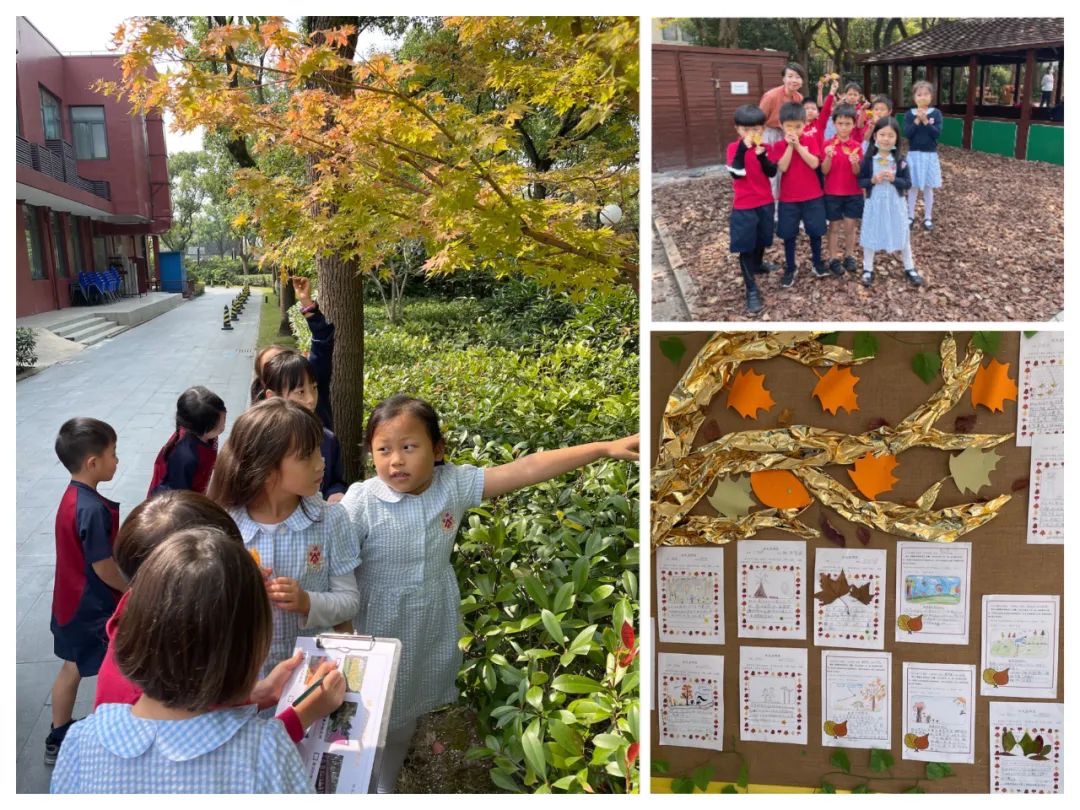 "Autumn" study in Key Stage 1
"Autumn" study in Key Stage 1
Starting from Year 2, each text has corresponding after-school vocabulary and reading exercises, focusing on the cultivation of students' listening, speaking, reading, and writing skills.
Each unit in the new textbook has specific learning objectives which aim to develop thecompetency development goals set for CNL students in Key Stage
1. The competencies are:
- Oral language ability
Students can listen attentively and express themselves in Mandarin. They can differentiate and choose appropriate language according to situations, contexts, and purposes;
- Aesthetic proficiency
Students are provided with rich viewing and presentation opportunities, enabling them to combine images and Mandarin to convey ideas and values;
- Reading ability
Students cultivate a lifelong love of reading Chinese, and they acquire reading skills and comprehension ability through a variety of text genres;
- Writing ability
Students' enthusiasm for self-expression is stimulated through writing, whilst developing foundational writing and composition skills.
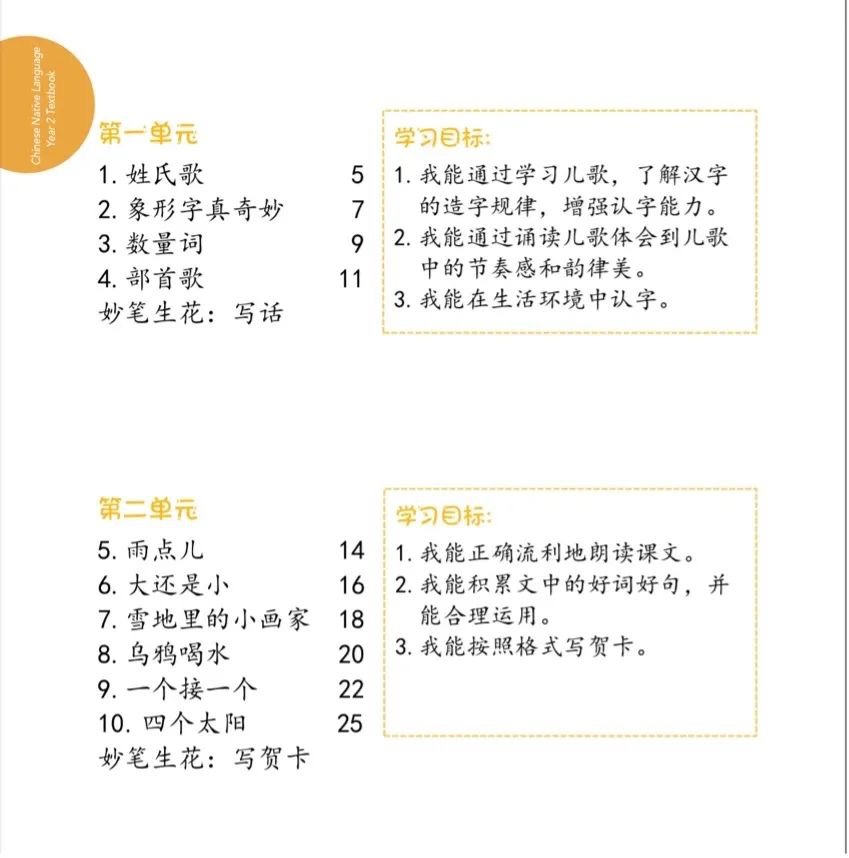 Year 2 CNL textbook
Year 2 CNL textbook
Holistic Education
Our CNL curriculum sits within our holistic educational philosophy. By placing children at the centre, we encourage academic, emotional, and social development. Children in the CNL programme access deeper meanings through the study of Mandarin, connecting them to emotions, their wellbeing and that of others.
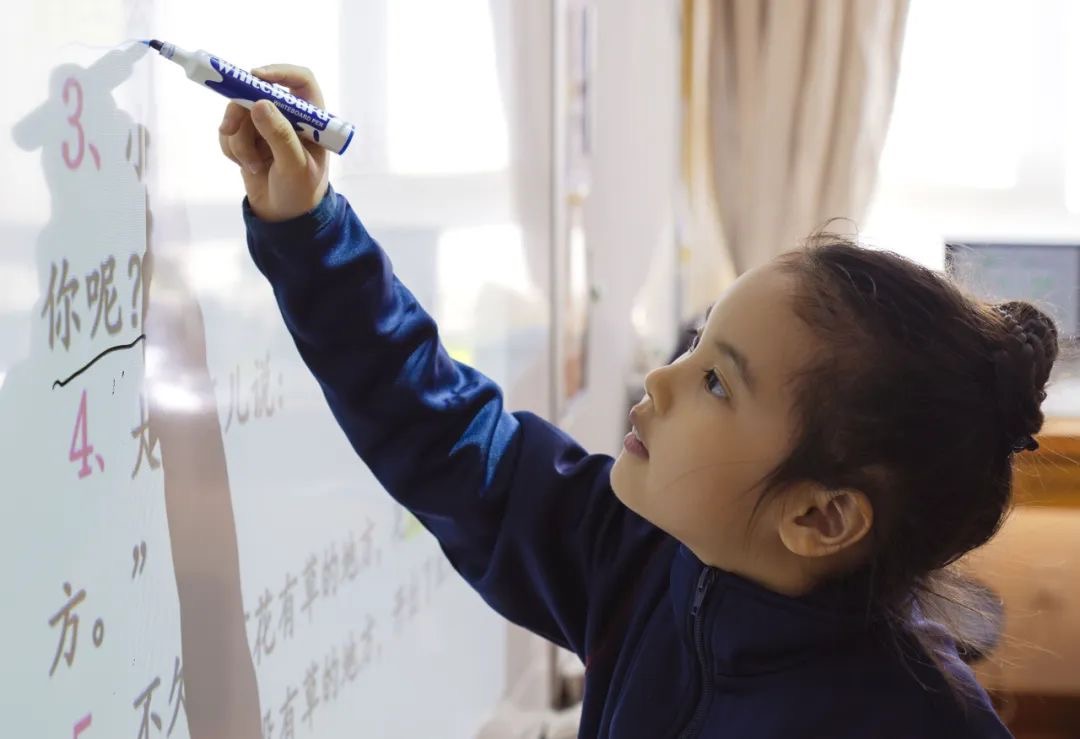
In this way Mandarin not only conveys emotions, but also acts as a bridge to build connections between people and between people and the world.
Parental involvement in their child’s Mandarin learning journey is also key. It is expected that parents and students will do parent-child reading together, aiming to finish one book each week and recording the progress in the shared reading log.
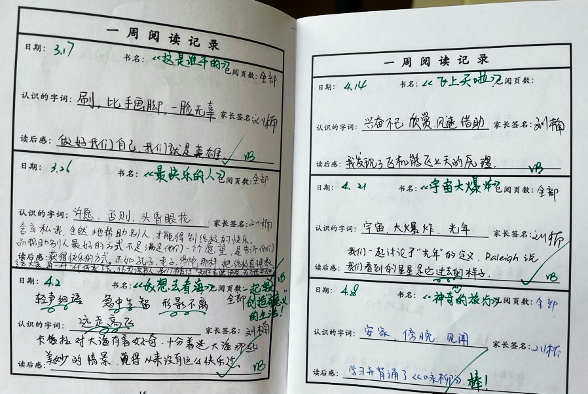 Parent-child reading log
Parent-child reading log
Children are provided with a variety of enrichment texts, ranging from fairy tales to history to popular science and traditional stories. The texts are rotated through the school year according to context. For example, this year, considering the impacts of the spring lockdown, the text "My Emotional Monster” was added to encourage students to face and manage their emotions.
Parent-child reading not only greatly assists children in developing excellent reading habits and exploring new interests, it also promotes the development of robust parent-child relationships.
Mandarin Learning in Daily Life
In addition to academic and emotional aspects, daily life is also an important part of Mandarin language learning. The goal of our language learning approach is that by the end of Year 2, students can switch comfortably between English and Mandarin, whilst always remaining secure in their native language.
An important part of that is making sure that our students encounter and use Mandarin in a variety of places and contexts throughout DUCKS.
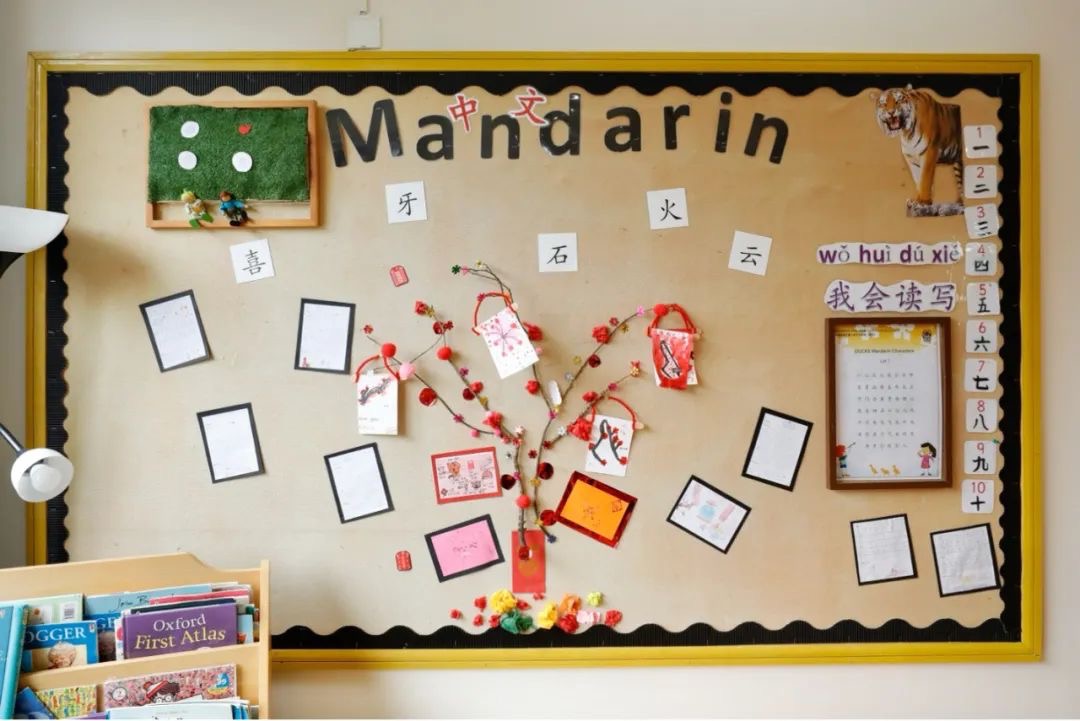 Chinese decorations in the classroom
Chinese decorations in the classroom
In the corridors, for example, we see decorations with Chinese elements which introduce and illustrate aspects of Chinese traditional culture. This not only improves the fun of learning Mandarin, but also cultivates children's understanding of and appreciation for Chinese culture.
Through the Co-curricular Activity (CCA) programme, students have further opportunities to use and engage with Mandarin. In the Chinese Drama CCA, for example, students are introduced into the world of drama in Chinese, where they have the opportunity to bring their favorite characters to life by utilizing fun traditional Chinese drama games, public speaking exercises, Chinese poetry and popular folk tales.
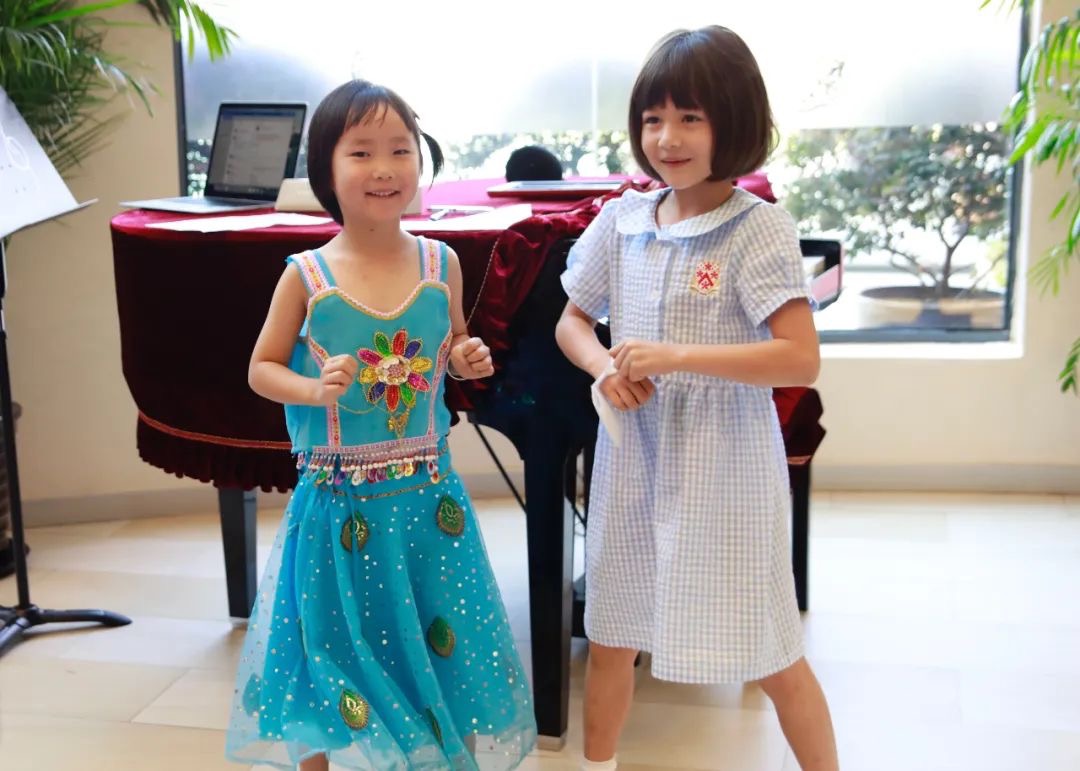 Culture Morning activity
Culture Morning activity
In addition, DUCKS holds weekly Culture Morning activities where teachers and students share with each other cultural traditions from different countries. Past culture mornings have showcased traditional Chinese shadow puppet art, ethnic minority costumes, tea ceremony and the twenty-four solar terms.
Traditional Chinese festivals are also celebrated, for example Mid-Autumn Festival and Lunar New Year. We encourage all children to engage in these activities, share their talents, and appreciate the rich traditions of our host country.
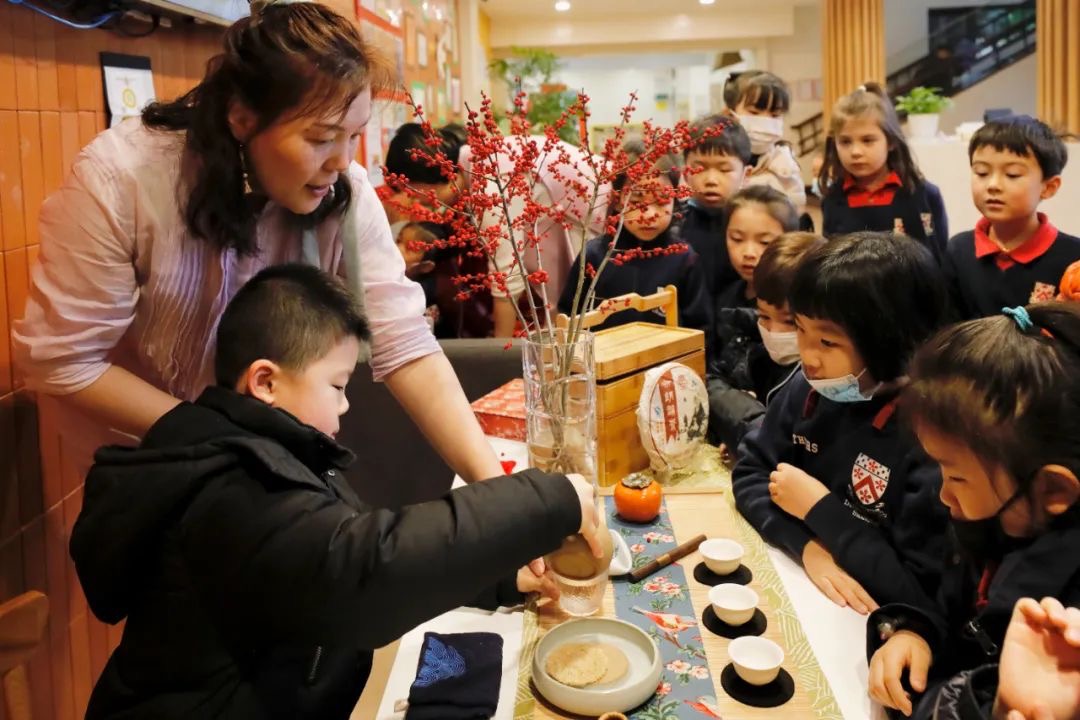 Lunar New Year tea party
Lunar New Year tea party
Summary
- Year 1 and Year 2 represents a key stage in language acquisition.
- New changes in our CNL curriculum have accelerated learning for our native Mandarin speaking students.
- Our Year 1 and Year 2 CNL programme creates a strong foundation for future success.










